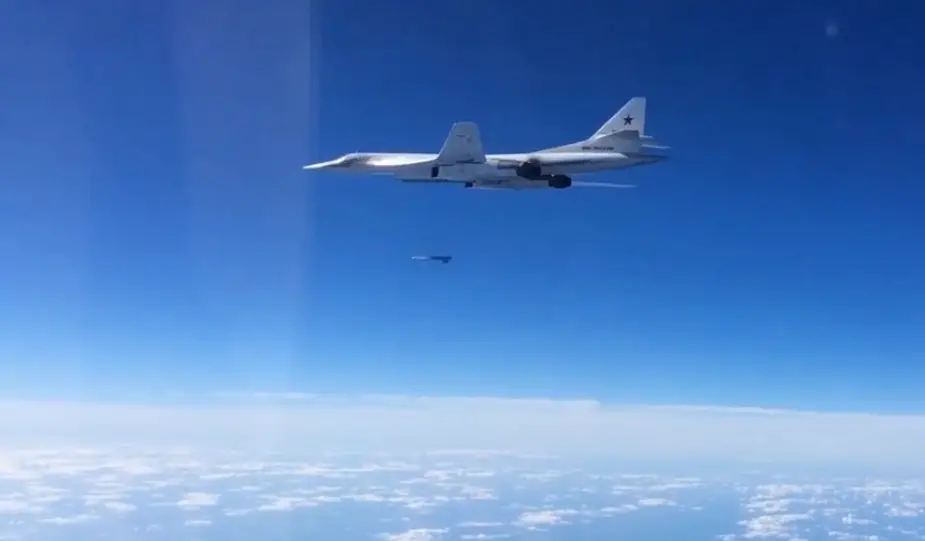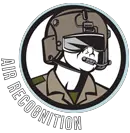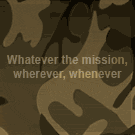Foreign fighter jets regularly accompany Russian long-range aircraft over neutral waters. All the Russian flights are agreed and monitored to avoid disputes, Long-range Aviation Commander, Lieutenant-General and Hero of Russia Sergey Kobylash told the Izvestia daily.
 Tu-160 launching Kh-101 (Picture source: mil.ru )
Tu-160 launching Kh-101 (Picture source: mil.ru )
Some time ago, there was a lack of pilots in the Russian Aerospace Forces. Few men applied to study in air force schools. The situation changed in 2013. Enrolment increased and 2018 saw the necessary graduation figures. At present, the long-range aviation is normally manned and can engage in all missions.
All graduates have been appointed to corresponding positions. Young officers arrive in air units with sufficient basic skills. However, each graduate has to retrain for specific aircraft and be licensed for independent flights. After all exams and ground training, the graduate will sit in the cockpit as an aide to the commander or a navigator and will work in an experienced crew.
Pilots do not fly heavy long-range aircraft alone. It is always a crew and each officer is doing his duties and assists other crewmembers, if necessary. A young pilot needs three-four years to career to an aircraft captain.
The fleet of long-range aviation is annually upgraded. It includes Tu-160, Tu-95MS strategic bombers and long-range Tu-22M3 aircraft. The work will continue in 2020. As for upgraded Tu-160M and Tu-22M3M, they have to complete flight trials first. After that they will be supplied to long-range air formations.
Kh-101 cruise missile of upgraded and prospective long-range aircraft was successfully fired at terrorists in Syria. It confirmed characteristics and fulfilled all missions with maximum precision and in full volume.
Foreign fighter jets regularly establish visual contact with Russian aircraft. It is normal global practice to accompany foreign aircraft in a specific flight section. The interception definition is not appropriate, as it means the flight was cut short in the protected airspace. Foreign pilots approach Russian aircraft, identify the origin, type, accompany them at a safe distance and fly away when they see that the flight complies with international norms over neutral waters.
Russian pilots always fly over neutral waters by agreed routes. Long-range aircraft carry modern navigational equipment and controls. They determine any deviations during the flight. Russia always has the data from objective controls in case disputes arise.
Deviations from the assigned route are possible because of bad weather and closed fly zones, but in this case the pilots request permission from air traffic controllers. Such facts are no violations, Long-range Aviation Commander Sergey Kobylash told the Izvestia.
© Copyright 2019 TASS. All rights reserved. This material may not be published, broadcast, rewritten or redistributed.
















